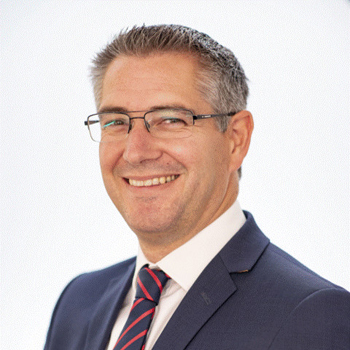Equity Trustees puts its stamp on Europe
Australia’s administration, trustee and software companies have a great track record in international expansion, unlike many other Australian companies in other industries. With the rapid growth in our super industry, that’s a good thing.
It’s good to have Australians looking after Australian assets. We’re probably not smarter than anyone else, on average, and we may not even be more honest, to be honest. But clients know where we live. Notwithstanding all the divisions within the country which have become apparent as we head toward a federal election, we are, dare we say it, one nation.
Equity Trustees (EQT), the old listed trustee, administration and advisory firm, recently opened an office in Ireland, expanding from its UK-based operation established with the purchase of Fund Partners in 2016. EQT, along with other fund administrators, has hedged its bets regarding Brexit. While most of the rest of the world regards Brexit as an incredibly embarrassing farce for the UK Government, for investment fund administrators it is serious. They are at the point where the rubber hits the road for people’s savings.
James Gardner, who was chief executive of Fund Partners prior to its purchase by EQT, the joint chief executive of Equity Trustees’ European and UK business, told investor seminars in Sydney and Melbourne earlier this month that there were three key considerations for investors when looking at the world’s second-largest economy (per capita) – Eurozone. They are:
- For fund managers there are many opportunities in Europe as a destination for their Australian clients as well as themselves
- But there are a lot of challenges. Putting Brexit aside, Europe is not one country. It consists of 28 disparate markets. There are cultural differences, if not legal once between, say, Spain and Germany, and
- Getting one’s head around Brexit is not easy. “It’s a thankless task trying to make sense of it,” Gardner said in Sydney.
Gardner said that Europe continued to grow and, even though it was highly regulated, the funds industry made up about 22.5 trillion euros (A$35.54 trillion). It will account for 27 per cent of the global funds’ assets under management by 2020. It would remain the world’s second-largest global investment market at least until 2025, he said.
“The number one mistake that people make is to do with their distribution strategy,” he said. “They think Europe is one market… The UK, France and Germany make up 60 per cent of the market.”
From an administrator’s perspective, opening an office in Dublin adds to their costs but is probably the safest thing to do on behalf of clients. Gardner thinks that the UK, assuming it exits the EU, could well come back as an important investment funds hub, alongside Dublin and Luxembourg.
EQT, he said, had an open-architecture model, assisting client managers and funds in establishing transition arrangements. The Central Bank of Ireland had processed more than 100 Brexit applications prior to March 29, he said. “They [the Irish central bank] said that applicants needed to show they ‘had their hearts and minds in Ireland’, which could only come from the Irish.”
Harvey Kalman, the head of EQT’s global fund services business and executive general manager for the company, said that the independence of trustee and administration companies such as his was increasingly being valued in the marketplace. “We have more than 130 clients, with more than 300 funds. Both domestic and international,” he said.
EQT recently recruited Rob Harrison, an experienced Australian fund manager based in New York, to head up North American sales and client service for the firm. He previously was head of BNP Paribas Investment Partners for North America. Given Australia’s growing super fund pool, US and other overseas managers are increasingly looking to set up shop here.
Harrison said that, internally, EQT’s capabilities have been well established in the UK and Europe. “In the US, I’m working with North American managers to help them open up in Australia, as well as the UK. “The key to offshore investing for managers is distribution,” he said. “And we can help them with that.”
– G.B.










